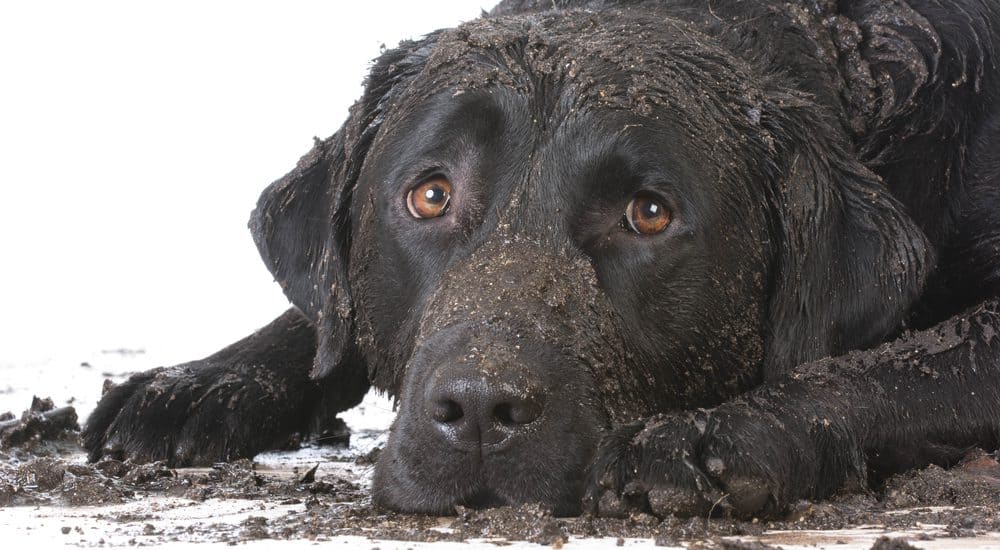
It’s National Pet Month and time to celebrate just how much our pets do for us. That includes thanking them for the unexpected benefit of having animals in our homes – the bugs and bacteria they share with us that scientists believe can help keep us healthy.
We’ve switched back to British summertime and with the spring sunshine showing up every nose smudge on the patio doors and all the little piles of pet hair gathered up under the sofa, many of us feel the urge to give our homes a thorough spring clean. And, while it’s important to maintain good standards of home hygiene, scientists suggest that we shouldn’t stress about being dirt-free.
Dog-borne microbes
Environmental journalist Richard Schiffman reports in The New York Times that: “Scientists are paying increasing attention to the ‘indoor microbiome,’ the billions of bacteria, viruses and fungi that we share our homes and offices with. Exposure to a rich array of indoor germs may actually be salutary, helping stave off a variety of illnesses.”
Pets, especially dogs, add a lot to the diversity of the indoor microbiome. Research has shown that dog ownership raised the levels of 56 different classes of bacterial species in the indoor environment, while naturally more fastidious cats boosted only 24 categories.
Schiffman continues: “That cloud of dog-borne microbes may be working to keep us healthy. Epidemiological studies show that children who grow up in households with dogs have a lower risk for developing autoimmune illnesses like asthma and allergies — and it may be a result of the diversity of microbes that these animals bring inside our homes.”
Pets train a growing immune system
Jack Gilbert, director of the Microbiome Center at the University of Chicago and co-author of a recent study, discovered that Amish children in Indiana who grew up with farmyard animals around suffer from fewer immune-related illnesses. He concluded that this was because they live in close proximity to livestock and the bacteria they host, just as our human predecessors did for thousands of years. He argues that when we are deprived of contact with these ancestral bacterial allies, our immune systems sometimes lose the ability to distinguish between friend and foe. He suggests that when it comes to training a growing immune system, cohabitating with pets is the next best thing to living on a farm.
So, is our obsession with scrubbing, disinfecting and vacuuming bacteria away from our indoor world mean we have become too clean for our own good? The reality is that it’s all about balance.
Good hygiene isn’t about being dirt-free
NHS Choices advises: “Throughout life, it is important that our bodies have the right balance of some exposure to both good and bad germs, particularly in our gut and on our skin, to ensure that the immune system is trained to deal with different kinds of substances. Good hygiene is about preventing the spread of germs at times and in places and situations where it really matters, such as when preparing food, after using the toilet, after sneezing and when someone’s ill with an infection. Good hygiene isn't about being dirt-free and doesn't require being obsessively clean.”
Keeping things clean for small pets
And, just as good hygiene where it matters is important for humans, the same applies for our small pets, particularly as the weather gets warmer. Burgess in-house vet Dr Suzanne Moyes advises: “Regularly cleaning out cages, hutches and runs with pet-friendly disinfectant, along with grooming, is vital to help small pets stay healthy. Damp, dirty bedding can attract flies, leading to potentially fatal conditions such as fly strike. This occurs when flies lay their eggs on or around an animal’s rear, which hatch within hours into maggots that eat the animal’s flesh and release dangerous toxins.”
Sources: nytimes.com, nhs.uk














